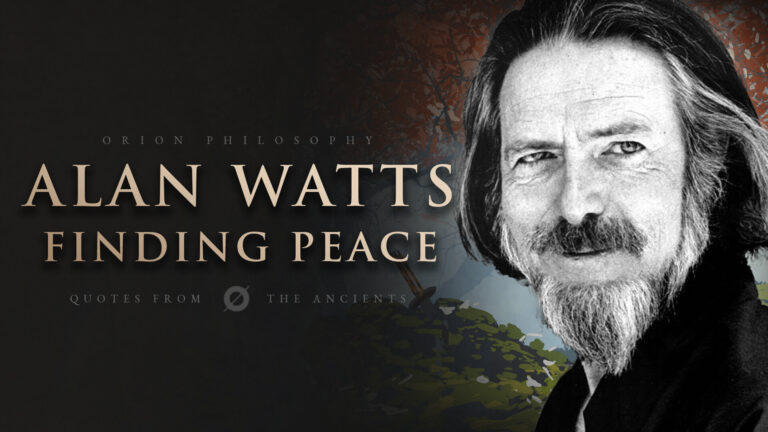Immanuel Kant was a German philosopher and an influential mind in the philosophy of Enlightenment. He promoted the idea that one should think feely and autonomously, without influence from authority or doctrine.
One of Kant’s core beliefs was that reason is the ultimate source of morality and that what we perceive as beauty and desirable is subjective and dependent on the mind of the individual.
Kant also proposed that because of our lack of information and tangible evidence, it is impossible to know whether or not God, or an afterlife, really exists. He put forward the sentiment that people are justified in believing in God, despite not being able to know of it’s existence.
The quotes below are some of his best.
Immanuel Kant Quotes:
We are not rich by what we possess but by what we can do without.
Act in such a way that you treat humanity, whether in your own person or in the person of any other, never merely as a means to an end, but always at the same time as an end.
All our knowledge begins with the senses, proceeds then to the understanding, and ends with reason. There is nothing higher than reason.
Seek not the favour of the multitude; it is seldom got by honest and lawful means. But seek the testimony of few; and number not voices, but weigh them.
Genius is the ability to independently arrive at and understand concepts that would normally have to be taught by another person.
Enlightenment is man’s emergence from his self-imposed immaturity. Immaturity is the inability to use one’s understanding without guidance from another.
Two things fill my mind with ever-increasing wonder and awe, the more often and the more intensely the reflection dwells on them: the starry heavens above me and the moral law within me.
Morality is not properly the doctrine of how we may make ourselves happy, but how we may make ourselves worthy of happiness.
Rules for happiness: something to do, someone to love, something to hope for.
The people naturally adhere most to doctrines which demand the least self-exertion and the least use of their own reason, and which can best accommodate their duties to their inclinations.
Our age is the age of criticism, to which everything must be subjected. The sacredness of religion, and the authority of legislation, are by many regarded as grounds of exemption from the examination of this tribunal. But, if they on they are exempted, they become the subjects of just suspicion, and cannot lay claim to sincere respect, which reason accords only to that which has stood the test of a free and public examination.
One who makes himself a worm cannot complain afterwards if people step on him.
Skepticism is thus a resting-place for human reason, where it can reflect upon its dogmatic wanderings and make survey of the region in which it finds itself, so that for the future it may be able to choose its path with more certainty.
If the truth shall kill them, let them die.
It was the duty of philosophy to destroy the illusions which had their origin in misconceptions, whatever darling hopes and valued expectations may be ruined by its explanations.
Look closely. The beautiful may be small.
Innocence is a splendid thing, only it has the misfortune not to keep very well and to be easily misled.
As nature has uncovered from under this hard shell the seed for which she most tenderly cares – the propensity and vocation to free thinking – this gradually works back upon the character of the people, who thereby gradually become capable of managing freedom; finally, it affects the principles of government, which finds it to its advantage to treat men, who are now more than machines, in accordance with their dignity.
For peace to reign on Earth, humans must evolve into new beings who have learned to see the whole first.
In all judgements by which we describe anything as beautiful, we allow no one to be of another opinion.
How then is perfection to be sought? Wherein lies our hope? In education, and in nothing else.
Man must be disciplined, for he is by nature raw and wild.
Out of the crooked timber of humanity, no straight thing was ever made.
Space and time are the framework within which the mind is constrained to construct its experience of reality.
Thoughts without content are empty, intuitions without concepts are blind.
Nothing is divine but what is agreeable to reason.
A man abandoned by himself on a desert island would adorn neither his hut nor his person; nor would he seek for flowers, still less would he plant them, in order to adorn himself therewith. It is only in society that it occurs to him to be not merely a man, but a refined man after his kind (the beginning of civilization). For such do we judge him to be who is both inclined and apt to communicate his pleasure to others, and who is not contented with an object if he cannot feel satisfaction in it in common with others. Again, every one expects and requires from every one else this reference to universal communication of pleasure, as it were from an original compact dictated by humanity itself.
Whereas the beautiful is limited, the sublime is limitless, so that the mind in the presence of the sublime, attempting to imagine what it cannot, has pain in the failure but pleasure in contemplating the immensity of the attempt.






